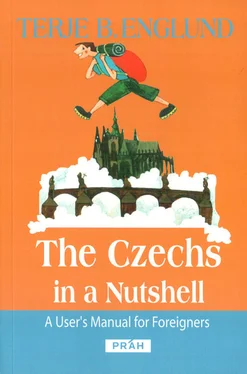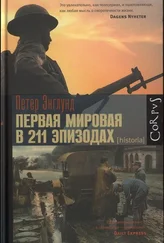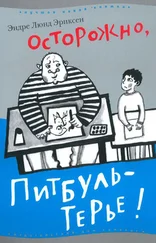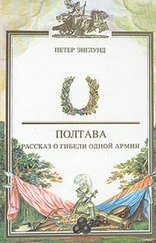Yet the Czechs’ admiration of Hus is not that strange. In a European perspective, it’s even fair to say that his importance overshadows that of both Masaryk and King Charles.
One of the reasons for Hus’ popularity probably lies in his utterly unglamorous heritage. His mother was a country lass who lived in the village of Husinec near Prachatice in Southern Bohemiaaround 1371. Since his father was unknown, young Jan got his funny surname( husa means goose) after his birthplace. All that is known about his childhood is that he liked to play chess and that his mother wanted him to become a priest. After studies at Prague’s newly-established university, Jan fulfilled her wish in 1400, when he was ordained.
Only two years later, Hus’ career as a spiritual shepherd took a major leap upwards. The young country priest was appointed preacher in the Bethlehem Chapel in Prague’s Old Town. Contrary to most of his colleagues, Hus was deadly serious about his job. Like the English theologian John Wycliff, who in many ways was the role model to the young Czech priest, Hus was obsessed by the idea that the Church must get out of the moral mess in which it had landed because of its ostentatious greed. And the only way out, Hus argued, was to behave in greater accordance with the New Testament.
At a time when most Catholic clergymen behaved like the Chicago mafia in the 1930s (it was, for example, quite common for well-connected good-for-nothings to buy a lucrative priesthood and then employ a substitute to do the job), ordinary people welcomed the Bethlehem preacher’s sincerity with open arms. Besides preaching in the Czech language. Hus relentlessly thundered that the church would improve its shabby reputation only if it abandoned its sinful striving for worldly goods and, most importantly, did not allow the country’s rich and mighty to buy forgiveness for their sins!
As time went by, Hus’ clean-hands gospel gained the support of Prague’s nobilityand even of King Václav IV and his court. By 1409, the Bethlehem preacher had become so popular that the king appointed him rector of Charles University, at that time Central Europe’s most important educational establishment. However, the majority of the Catholic clergy, for obvious reasons, hated him, and so did the university’s Germanprofessors.
In 1412, after Hus and his followers had raged especially hard against indulgences, the Pope himself got so furious that he laid the entire city of Prague under interdiction. Frightened by the political consequences of Hus’ activities, King Václav realized that he could no longer support the hard-hitting and rebellious preacher. For the next two years, Hus lived as an outlaw, hiding at the fortresses of local noblemen who still supported him.
At this stage, Hus had already secured himself a decent place in Czech history books. During the last year of his life, he earned himself an entire chapter.
In 1414, the Czech preacher was called to the city of Constance (now near Germany’s border with Switzerland) to explain his teaching to the Catholic Church’s top leaders, the Synod. To make sure that he accepted the invitation, both the Roman Emperor and the Pope promised Hus safe conduct. But soon after he appeared in Constance, Hus was arrested and subsequently charged with heresy.
On July 6, 1415 — a date every true Czech bears in his memory — the brave preacher was burned to death at the stake as a heretic. Less than a year later, the Synod gave Hus’ friend and fellow reformer, the philosopher Jeroným Pražský, the same treatment. This, the Catholic Church reasoned, would certainly convince the Czech troublemakers that enough was enough.
As history later proved, it didn’t. The murder of Jan Hus triggered wars (see: Defenestration) and long-lasting upheaval. What’s more, many Czechs still claim that Hus’ death on the martyr’s stake in Constance bears a clear resemblance to that of Christ himself: like Jesus, Hus was subjected to a mock trial that had sentenced him to death even before the trial started. While Judas betrayed Jesus, several of Hus’ earlier friends turned against him in Constance. And just like Jesus, Hus could easily have saved his neck by renouncing his teaching as wrong and heretical. Instead, he voluntarily chose death after having uttered the golden words:
“Search for truth, listen to truth, learn the truth, speak the truth, keep to the truth, defend the truth until you die, for at last, truth will redeem you!”
Seen with modern eyes, the life and death of Jan Hus occurs as a perfect screenplay in an action film where good fights evil. And indeed, to thousands of Czechs Jan Hus still has the halo of a religious Rambo, who put up a fight for true and clean Christianity against a degenerated and corrupt church. This view might be a bit simplifying, but it’s well documented that Hus’ central work De ecclesia made a striking impact on the reformer Martin Luther. “Without being aware of it, I had preached and written everything Jan Hus taught,” Luther later acknowledged. “Instinctively, we are all Hussites.”
Therefore, the Czechs can with some rights boost their national identitywith the fact that Reformation didn’t actually start with the German Martin Luther, but with their own Jan Hus. Quite symbolically, both Tomáš G. Masaryk (in 1918) and Václav Havel(in 1989) took up Hus’ slogan Veritas Vincit — truth prevails — when they spearheaded the reformation of the Czech nation. The nationalist Sokol movement is clearly inspired by the Hussites, and it’s even tempting to claim that it was no coincidence that Jan Palachchose to burn himself to death to protest against the Soviet occupation of Czechoslovakia.
Yet Jan Hus’ legacy still manages to divide the Czechs. Even though Cardinal Miloslav Vlk, the current head of the Catholic Church in the Czech Republic, has made great efforts to reconcile with the Hussites, many Czech Catholics still regard Master Jan as a fanatic, the Hussite warriors as a medieval Taliban and their leader Jan Žižka as the predecessor of Osama bin Laden (see: Religion).
“What’s so great with a movement that threw Bohemia and Moraviainto two centuries of economic depression and cultural isolation from the rest of Central Europe?” they spit.
Obviously, to the communists, Jan Hus was a natural hero: a peasant’s son who fought for the common people (“proletariat”) against the wealthy clergy (“greedy capitalists”) and German professors (“vengeful nazis”) at the university, simply had to be abused. Even though nobody can accuse the communists of nourishing exaggerated sympathies towards religion, from 1948 to 1954 the totalitarian regime handed out millions of korunas to restore the derelict Bethlehem Chapel. Later in the 1950s, they willingly financed a lavish film trilogy about Master Hus.
Needless to say, the Bolsheviks’clammy embrace of Jan Hus (curiously enough, the Italian dictator Benito Mussolini was also a great fan of him) backfired and made people either confused about his real historical importance, or even more indifferent to religion as such. And while the Bolshevik regime luckily belongs to history, the antagonism between Czech Catholics and Hussites is still alive and kicking, as a quite entertaining quarrel about the monuments on Prague’s Old Town Square demonstrates.
Ever since the Velvet Revolution, Czech Catholics have struggled to reinstall the magnificent Mary column that was torn down in 1918. Money has been raised through a collection campaign, a suitable stone has been transported all the way from India, and a copy of the column has even been finished. But the Catholics are still waiting. To a majority of Prague’s inhabitants, it’s simply unacceptable that a symbol of “Hus’ murderers” is erected next to the statue of the Martyr himself.
Читать дальше








![Theresa Cheung - The Dream Dictionary from A to Z [Revised edition] - The Ultimate A–Z to Interpret the Secrets of Your Dreams](/books/692092/theresa-cheung-the-dream-dictionary-from-a-to-z-r-thumb.webp)



